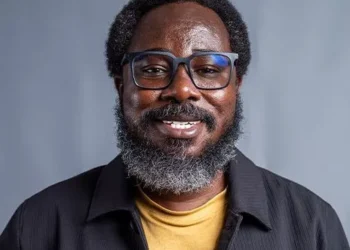A sharp escalation in armed violence across northern Mozambique has forced tens of thousands to flee their homes, further intensifying an already grave humanitarian emergency in Cabo Delgado. In July alone, over 46,000 people were uprooted by fresh attacks, bringing the total displaced since January to more than 95,000.
The latest surge in conflict has struck the districts of Chiúre, Ancuabe, and Muidumbe, pushing humanitarian agencies to the brink and highlighting a crisis fueled not just by insecurity, but by climate shocks, disease outbreaks, and a severe lack of funding.
According to the UN Office for the Coordination of Humanitarian Affairs (OCHA), attacks between July 20 and 28 prompted “the displacement of at least 46,667 people,” with Chiúre bearing the brunt. More than 42,000 people, over half of them children, were forced to abandon their homes in that district alone.
“Insecurity persists, and people on the move often lack civil documentation,” OCHA reported in a humanitarian bulletin released Saturday. “These challenges may impact the ability of displaced people to move freely, safely access basic services, and maintain their livelihoods.”
Many of those fleeing violence have congregated in Chiúre Sede, specifically in Bairro Micone and Bairro Namicir. The neighborhoods are now straining under the pressure of overcrowded shelters, and humanitarian agencies report a troubling increase in unaccompanied or separated children.
Aid Shortage Deepens Displacement Crisis
Food, shelter, and essential non-food items remain top priorities as the situation deteriorates. In the Ancuabe district, the number of displaced families rose rapidly over one week, with the International Organization for Migration (IOM) recording 444 households, or 1,946 people, fleeing their homes. Among them were over 1,200 children. Most came from Nanduli village and are now seeking refuge in Chiote and Ancuabe Sede.
In the nearby district of Muidumbe, gunmen reportedly torched homes in Magaia village and fired on civilians near Mungue. Nearly 500 families fled to displacement sites, where humanitarian workers continue to face access restrictions due to ongoing insecurity.
The risks are not just physical. OCHA warns that under international law, “civilians must be allowed to seek safety and freely choose their destination.” However, lack of identification documents, forced relocations, and dangerous travel conditions have raised serious protection concerns. With each passing week, these compounding risks push the displaced further into vulnerability.
The situation is made worse by a major funding shortfall. Mozambique’s 2025 Humanitarian Response Plan calls for $352 million in aid. Yet, as of July, just $66 million, or 19% of the total, had been received. That shortfall has forced humanitarian agencies to slash their support targets dramatically.
Originally planning to assist 1.1 million people, aid agencies have now scaled back their operations to reach only 317,000—a reduction of more than 70%. This has left hundreds of thousands without essential assistance in areas already reeling from conflict, displacement, and poverty.
“Urgent and sustained funding is essential to prevent further deterioration and address the escalating humanitarian needs that remain as acute and widespread as ever,” the OCHA report cautioned.
With conflict worsening, needs rising, and resources dwindling, the people of Cabo Delgado face a future filled with uncertainty. Unless support from international donors increases swiftly, the humanitarian crisis in northern Mozambique is poised to deepen, with devastating consequences for those already on the margins.
READ ALSO: Tasty Tom Tomato Recalls Some Products Over Safety Concerns



















